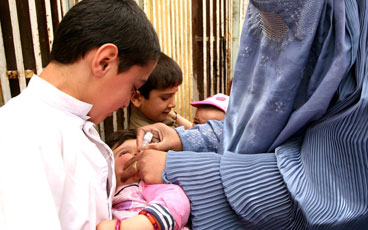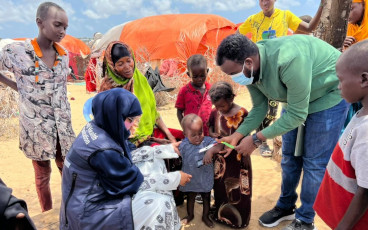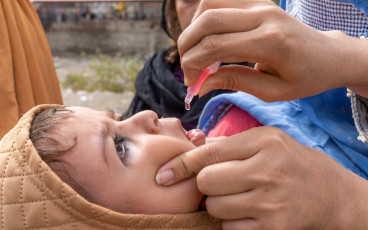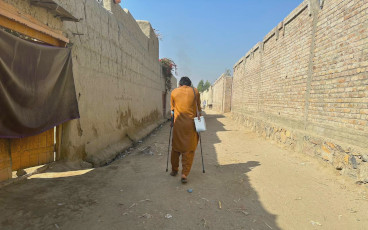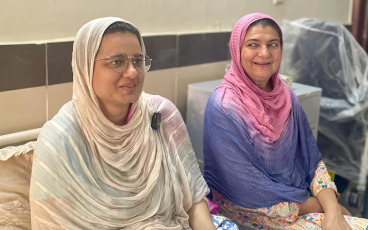Bill Gates and Aliko Dangote support polio eradication efforts in Nigeria
Gates and Dangote emphasized the need to eradicate polio, strengthen routine immunization, and improve primary health care.
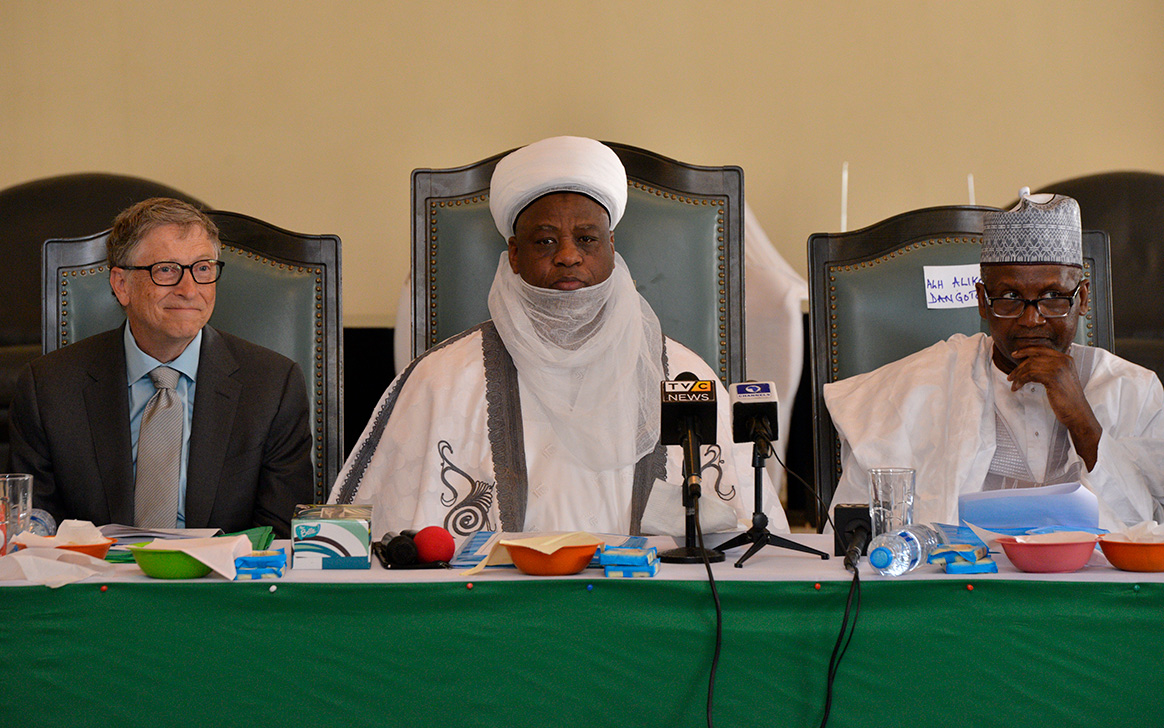
A unique group of people gathered last month in Sokoto state to commit to the twin goals of eradicating polio, and working to rapidly strengthen routine immunization. Bill Gates, and Africa’s richest man, Alhaji Aliko Dangote, joined traditional leaders from across northern Nigeria, Federal Ministry of Health officials, representatives from several State governments, and partners including UNICEF and WHO.
The two billionaires play a significant role in the fight to eliminate polio in Nigeria, where no wild virus has been detected since 2016. The Bill & Melinda Gates Foundation has committed US$1.6 billion in the country to date to fund pilot projects targeted at health care, agriculture and financial inclusion, a contribution which makes up their biggest investment in Africa. Aliko Dangote, who is Nigerian, has previously worked with Mr Gates to help interrupt transmission of the poliovirus in his country, and helps fund other health programmes as president of the Dangote Foundation.
During their visit, Mr Gates and Mr Dangote witnessed first-hand the progress Nigeria is making in polio eradication, routine immunization and primary health care provision.
At meetings held at the Sultan’s Palace and Governor’s House, Mr Gates highlighted the commitment of traditional leaders and reiterated the importance of engaging communities to reach every child with vaccines. Expressing his concern over the high infant mortality rate in Nigeria, he noted that vaccination is a cost effective way to save children’s lives.
Mr Gates also talked about the need to plan for the future of a polio-free Nigeria. Looking to how the polio eradication infrastructure can be used to help meet other health needs, Mr Gates said that the strong existing polio infrastructure – including vaccine supply chains, disease surveillance, laboratory systems and social mobilization networks – can be used to develop and improve routine immunization coverage for other diseases.
“We can prevent millions of deaths through routine immunization,” Mr Gates said. “We will not relent in our commitment towards this.”
Mr Dangote further highlighted that the fight against polio requires commitment from all stakeholders.
Drawing attention to malnutrition as one of the biggest factors undermining Nigeria’s progress, Mr Dangote urged the government and partners to reach out to private sector companies and ask them to donate at minimum 1% of their profits to financing the health sector.
At the meeting, the governors of Bauchi, Borno, Kebbi, Kaduna, Kano, and Sokoto States signed extensions of their Memorandum of Understanding on routine immunization. In doing so they reaffirmed their commitment to maximizing immunization coverage in their respective states, helping to protect every child against polio and other vaccine-preventable diseases.



